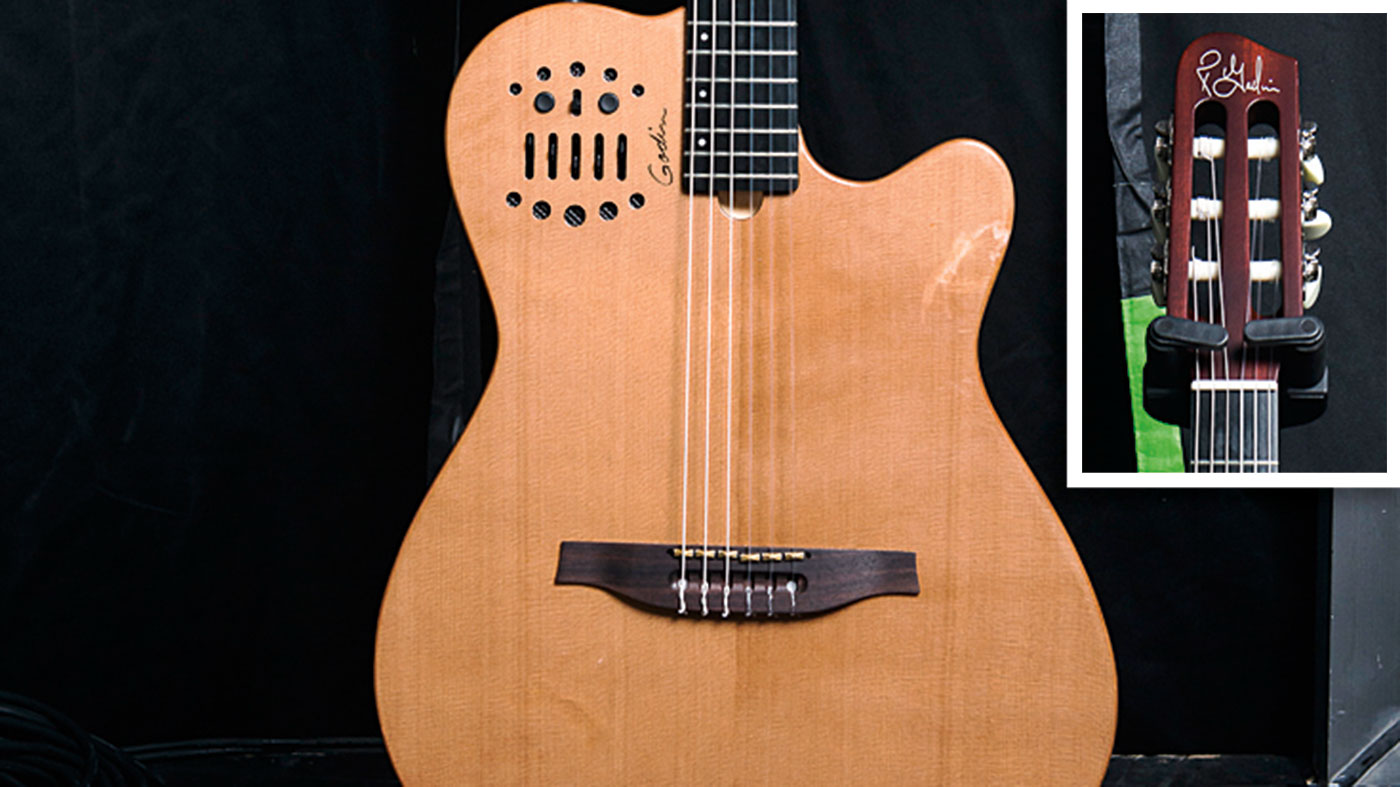Avenged Sevenfold talk playing hang-ups, practice philosophy and guitar rigs
Synyster Gates and Zacky Vengeance speak: "We’ve shown everyone we are musicians first and foremost"
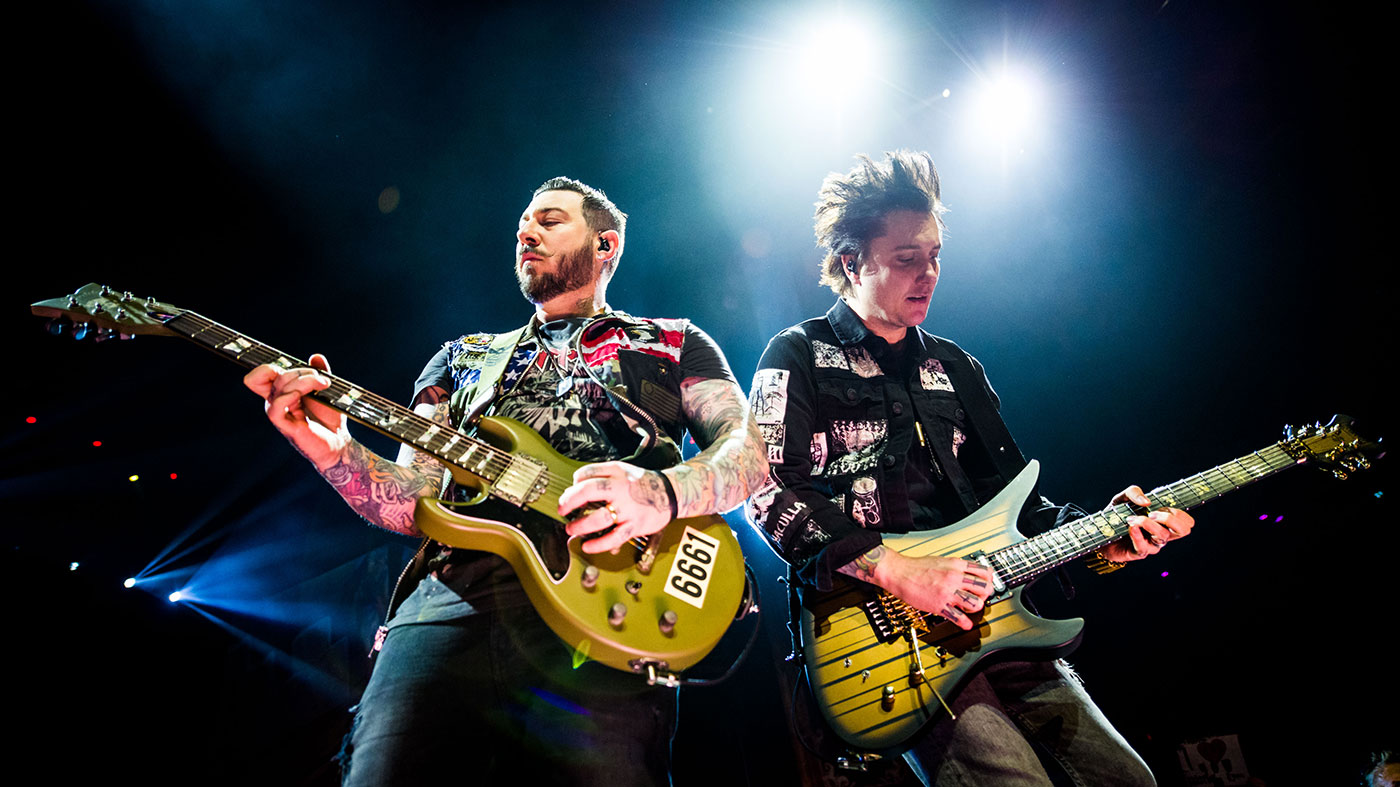
Introduction
They’ve become one of the definitive hard-rock bands of a generation, headlining the biggest venues and topping charts around the world. Avenged Sevenfold guitarists Synyster Gates and Zacky Vengeance take us deep inside the very heart of the stage…
While Synyster thrives on theory books and virtuososity, Zacky could be considered the man holding it all together
Backstage at the London O2 Arena, inside a room with a revolving wall that leads into a blue creative suite stacked with vinyl and magazines, through a secret bookshelf that opens into a games room, we find Avenged Sevenfold guitarists Synyster Gates and Zacky Vengeance.
The Californian quintet will be playing their biggest headline show on these shores in under an hour - the first of two nights in the largest room the capital can afford - though you would never have guessed it from their calm, measured demeanour.
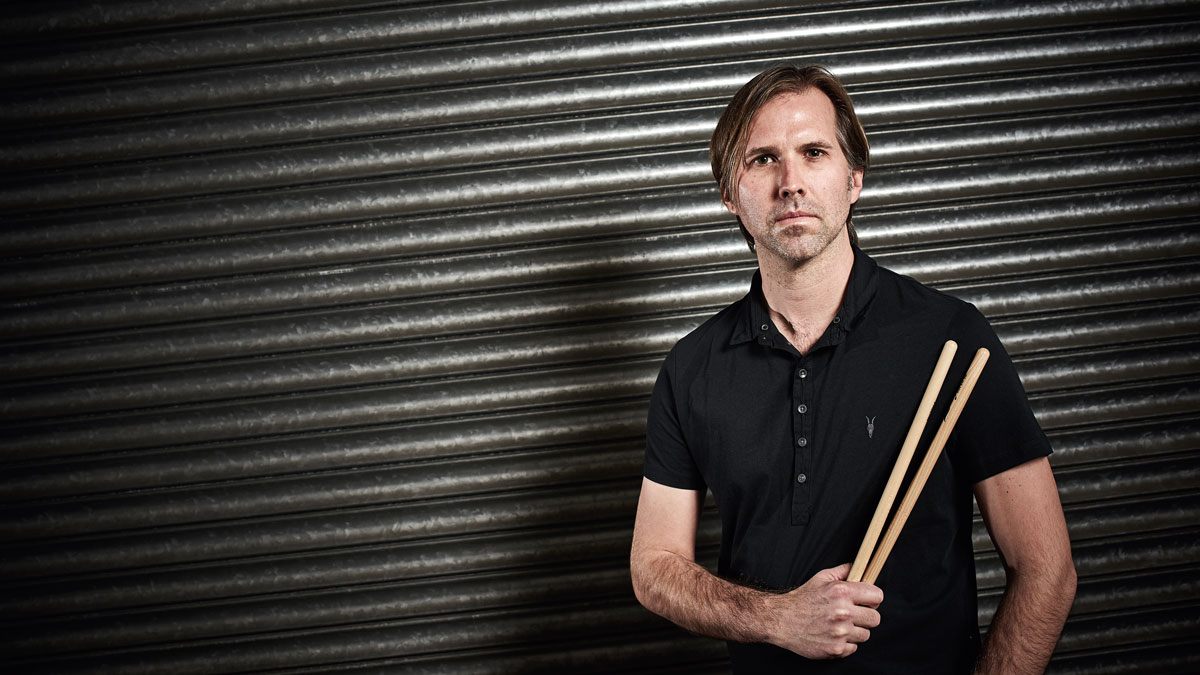
Brooks Wackerman on making his mark with metal masters Avenged Sevenfold
While Synyster thrives on theory books and virtuososity, Zacky could be considered the man holding it all together - the Izzy Stradlin to Synyster’s Slash. The pair have a rare dynamic - one where there are no bruised egos, and their live operations are executed with laser-like precision, on par with the metal mastery you’d expect from the likes of Metallica and Maiden.
Along with Slipknot and Trivium, they stand as one of few legitimate successors to that throne. But ask Synyster or Zacky if they’re indulging in any excessive rock star tropes they could easily get away with if their hearts desired - using a different guitar for every song, or blasting through vintage amps worth more than a house, for example - and the notion will be laughed off most modestly indeed…
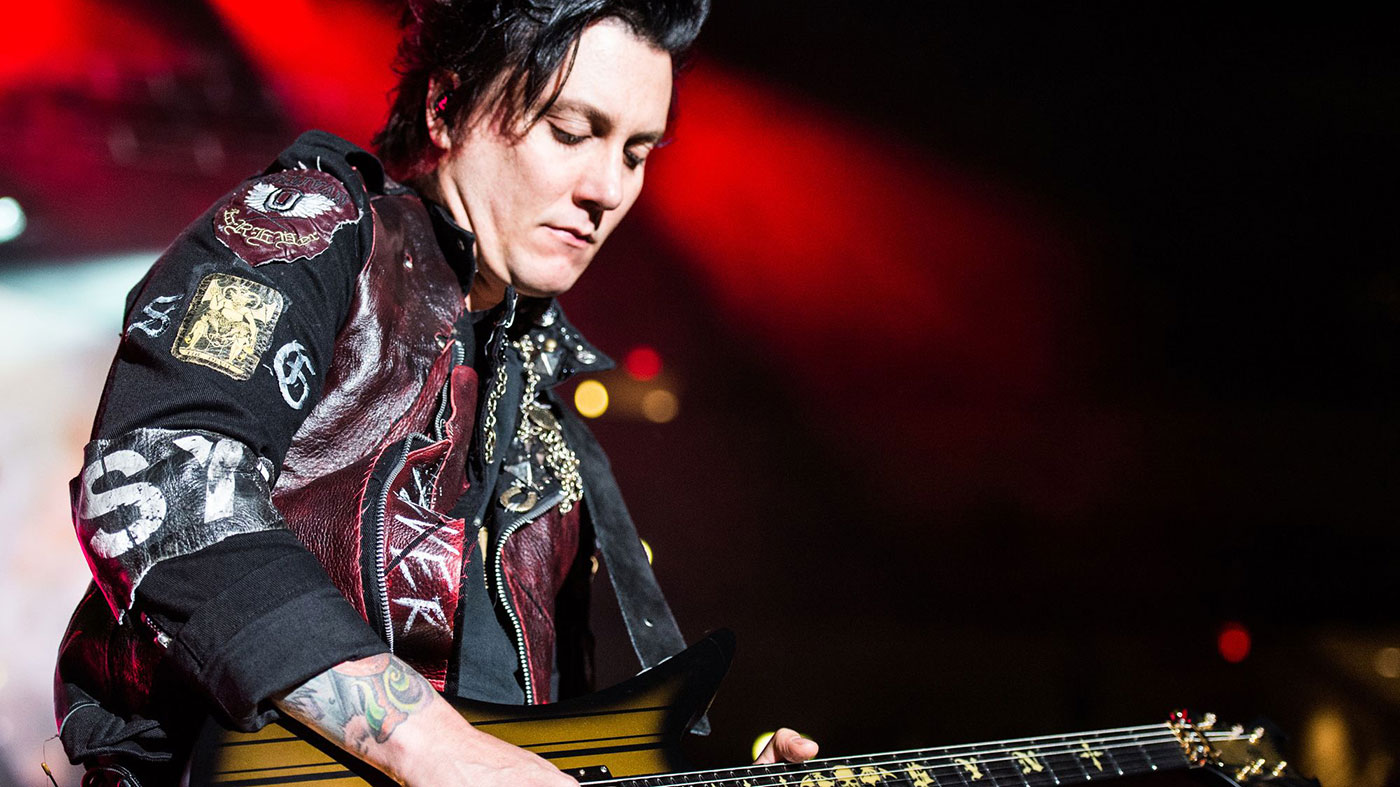
Rockstar relics
Have you ever been tempted to dust off the vintage relics for your live arsenal and go full-diva, so to speak?
Synyster: “Maybe I could have one guitar for every one or two songs, but it hasn’t gotten that crazy yet! We’re waiting to get paid for these shows. The cheque’s in the mail… classic! I have a pretty cool guitar collection at home, there are 10 main guys, I don’t need a fuckin’ hundred of ’em.
I have a pretty cool guitar collection at home, there are 10 main guys, I don’t need a f***in’ hundred of ’em
“There’s a ’54 Strat, ‘Brownie’, which has a classic Clapton vibe and I just got a Les Paul Junior in TV Yellow. I must admit, sometimes it’s fun to bust out the old Goldtops every now and then.”
Zacky: “I prefer to keep my rig as simple as possible. Syn has got more of the crazy shit, I prefer something a bit more foolproof. I just grew up playing punk rock guitar, that’s more my background.”
Your latest album, The Stage, feels like your most elaborate offering to date. Is there an element of snobbery from some prog fans who wrote you off as a radio-rock band?
Synyster: “We kinda were a radio-rock band. We were still pretty technical, but I think the prog people hated us because we didn’t do a bunch of weird time signatures… which are cool at times, but I’m more interested in progressive harmony.
We earned people’s respect. We’re not the band on MTV, wearing a bunch of makeup. We’ve proved we’re the real deal
“We’re more about other things over odd timings: orchestration, composition, horn/vocal arrangements - that’s where we get super weird. I love everything from Britney Spears to Michael Jackson. When there’s chaos happening, I want to sound like that and make people wonder, ‘What the fuck were these guys thinking?’ after a closer look at it.”
Zacky: “I remember playing the Underworld early on, then the Astoria and getting the biggest backlash from all the London fans wanting to tear us down to see if we’re the real deal. So we said, ‘Alright, we’re not coming back. We’re cancelling the tour and starting from the ground up.’
“We’ve shown everyone we are musicians first and foremost, we’ll produce our own albums and play The 100 Club. We earned people’s respect. We’re not the band on MTV, wearing a bunch of makeup. We’ve proved we’re the real deal.”
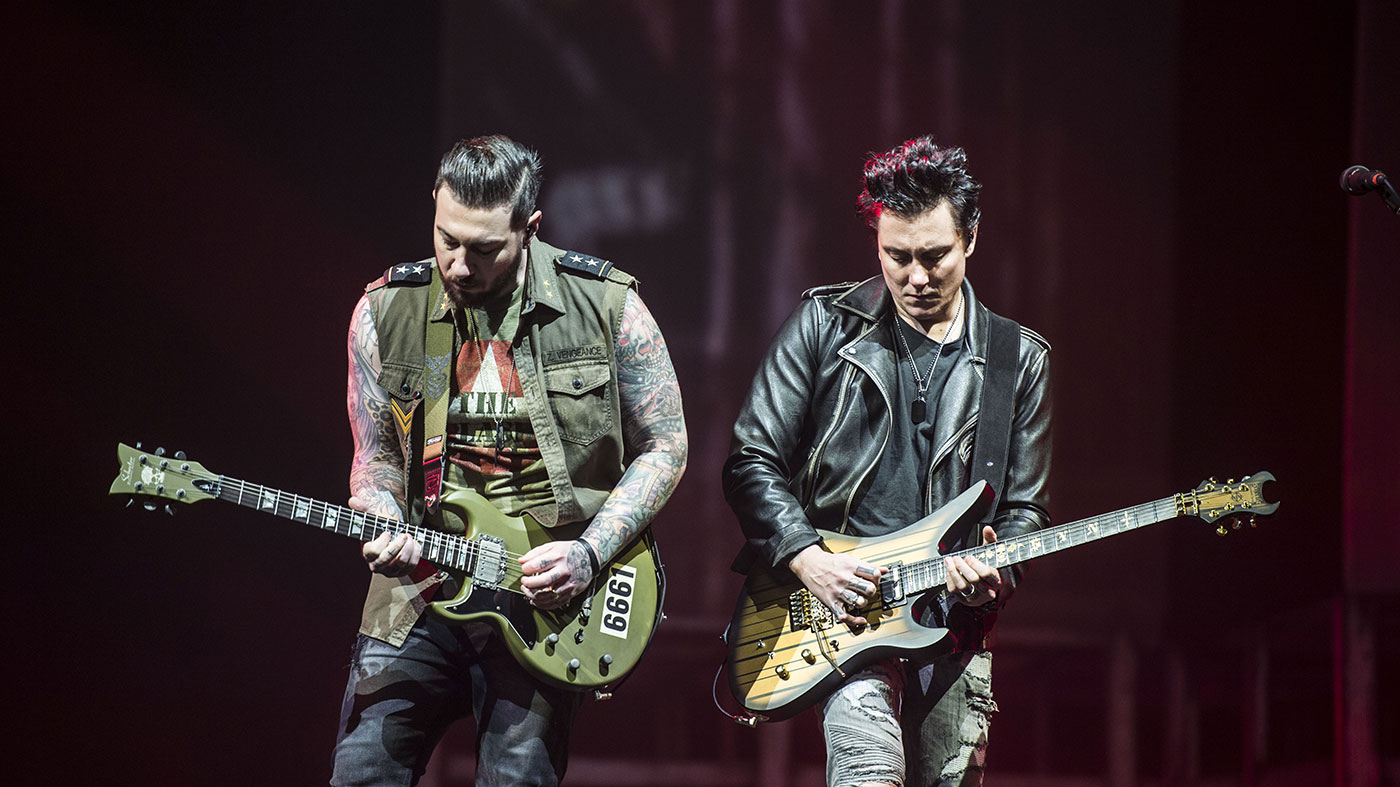
A change in tone
There are some really dramatic tonal shifts and key changes all over the album that are almost Disney-like in orchestration…
Synyster: “My dad always said you can create your own weather. You can create your own root notes and superimpose more progressions over them to get this major/minor tonality with layers of key changes. I love John Williams, Mr Bungle, Danny Elfman, Igor Stravinsky, Maurice Ravel, classical cats and then jazz guys like Holdsworth.
The album is progressive in nature, but in spirit it’s very punk rock
“Obviously you can’t always be crazy, but it’s about tension and resolution. When you decipher what’s happening, there’s whole tone and augmented shit all over the place. I got into a lot of that stuff on this record. You need to have some theory and understand what the fuck you’re doing. Invent your own scales if you want. If it’s something you’ve never heard before, all the better. It will always lead to something.”
Zacky: “The album is progressive in nature, but in spirit it’s very punk rock - about not giving a fuck, doing what we want to do. Me and [singer] M. Shadows always send each other books and articles to read, bouncing ideas. I gave him something about artificial intelligence, he sent me a book by Bill Nye called Undeniable: Evolution and the Science Of Creation, which really inspired me to pursue The Stage music video.
“Everything an artist does is scary, but we do it anyway. If someone tries to steer you off-course, push them outta the way and get back on course. Never giving up, that’s what I truly believe all the greatest bands have done.”
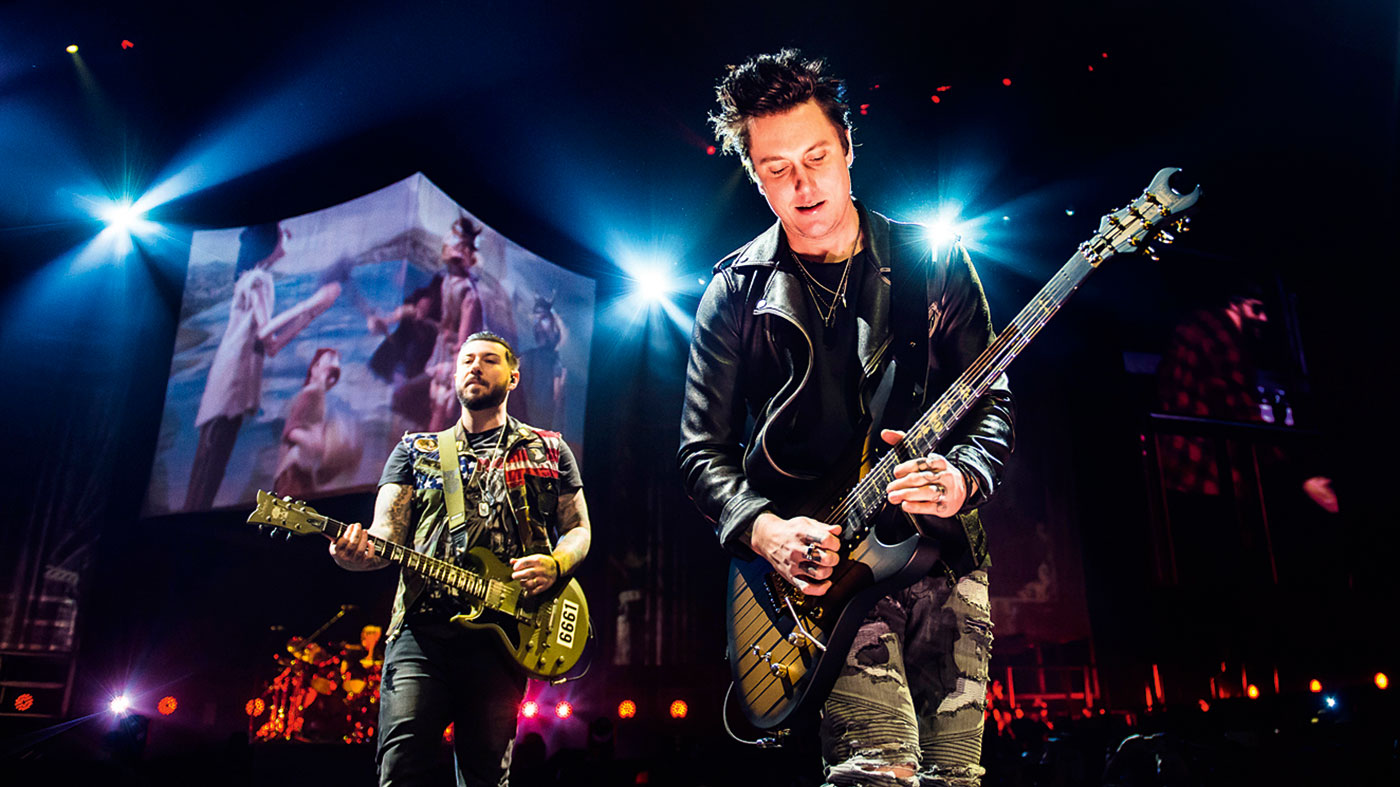
Lessons learned
So what have you learned from each other along the way?
Zacky: “I’ve learned a great deal of lead techniques from Syn, but I’ve never taken a formal guitar lesson in my life. If you told me to play an A chord, I wouldn’t even know what it was made of. I don’t even know what’s on my pedalboard… my tech controls it all. If I had to write a solo, it would probably take me all day and sound pretty poor.
We can read each other’s minds almost telepathically now, there’s no doubt about it
“But as far as playing what I want, I don’t think there’s anything I can’t do at this point. We can read each other’s minds almost telepathically now, there’s no doubt about it. We’re really lucky to have that dynamic.”
Synyster: “I think we come from similar but different schools of music. Zacky’s a punk-rocker by nature. Look at his right hand chug rhythms and shit like that, he’s got great sensibility. He makes fun of me all day long for being a guitar nerd! [laughs] He doesn’t want to do that. He wants to walk out on stage, drink as many beers as he can and rock out. It’s brilliant! With that, you usually get a shitty player and he’s not. Zacky’s an amazing songwriter.”
Are songs such as the 15-minute Exist the product of you pushing each other’s boundaries?
Synyster: “Definitely! Whenever we write something over both of our heads, we take the time to learn and appreciate it. Even on the harmonies, Zacky loves pulling those technique things off… he just doesn’t need to be that himself as a player.
We lucked out in the way our personalities mesh. The whole band is that way
“We lucked out in the way our personalities mesh. The whole band is that way. One guy is better at business, the other social media, this or that. Everyone supplements each other.”
Zacky: “The challenge is writing all of that crazy shit. You should always write above your skill level. We both do, and going back to learn old songs makes us better each time. Our dynamic is a great thing - with Syn being trained, he introduced more solos.
“If I came up with a lead line, he’d be able to put a dual on it to make it sound awesome like Iron Maiden. I asked him how he knew all that and he explained, ‘It’s just a fifth above this!’ His natural inclination is soloing. He’ll be jamming gypsy jazz backstage, just improvising crazy shit - he can play on top of anything.”
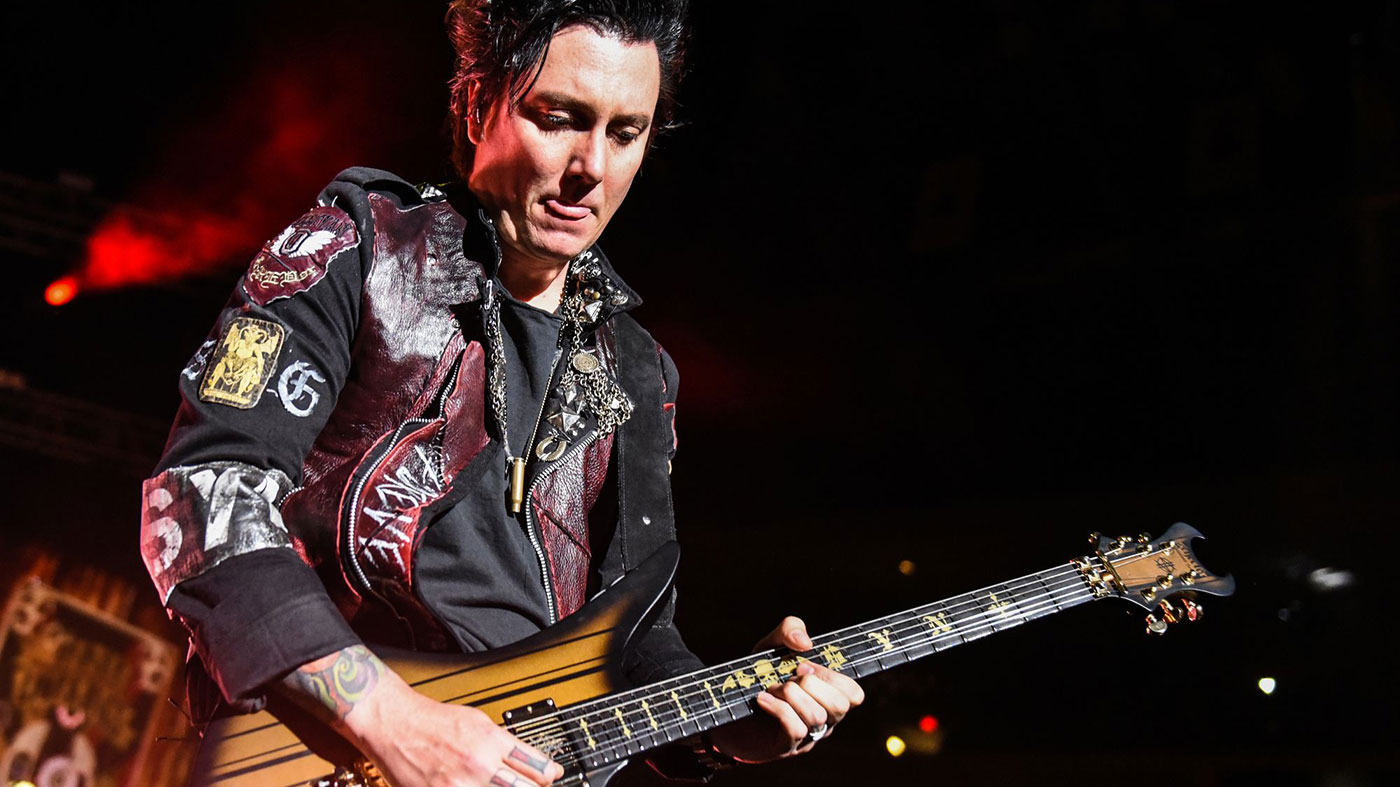
Flamenco show
The flamenco guitar outro to the opening title track is a great example of just how well-rounded you are as musicians…
Synyster: “I don’t really have a repertoire of flamenco playing! But in the studio, one of the greatest things is you can work out the kinks and do your version of anything. I’m certainly not studied when it comes to classical and flamenco, but I still enjoy listening to it. When you write something like that, you can fake your way pretty well. You’ll know if it sucks or sounds horrible pretty quick!”
I renovated my style at 19 years old when I came across by Return To Forever by Chick Corea, which had Frank Gambale on guitar
Zacky: “There are guitar players in other bands that I won’t mention that want to go head-to-head with Syn to show off their skills against his. If anyone felt that way about me, it would be like, ‘You’ve already fuckin’ won that battle, dork… I couldn’t care less so I’ll go hang with friends!’ To me, it’s all about going on stage and putting on a great show. We perform to the best of our abilities, but the guitar is merely a tool to deliver that performance.”
What’s been your biggest revelation while learning guitar - is there anything that noticeably accelerated your technical development?
Synyster: “I renovated my style at 19 years old when I came across by Return To Forever by Chick Corea, which had Frank Gambale on guitar. Back then we didn’t have access to much information so I only knew about legato or alternate picking. To hear all these notes happening and so fast… it blew my mind. So my dad got me this book and I started learning the pick strokes: ‘Down, down, up? Up, up, down? What the fuck is this?’
“And then the revelation of economy picking took place. It took me about two years and I never felt like a naturally gifted player until I got my head around that. I might suck at tapping, legato, alternate… but I can play smoothly and acceptable to my ear using that one technique. That’s my secret.”
When you’re playing bigger venues or recording bigger albums, you have to cut your gain in half, which forces you to listen and get tighter
Zacky: “Ultimately, it came when I started dialling back the distortion. Early on, you turn it up to 11 and it masks everything. You think that’s how it is supposed to sound. But when you’re playing bigger venues or recording bigger albums, you have to cut your gain in half, which forces you to listen and get tighter.
“I’ve had the privilege of watching guys like James Hetfield up close… listen to how tight his rhythm is on the crunch channel! If you practice and aspire to do that, you will. I don’t think there’s anything that can’t be achieved without practice… except for feel, I guess.”
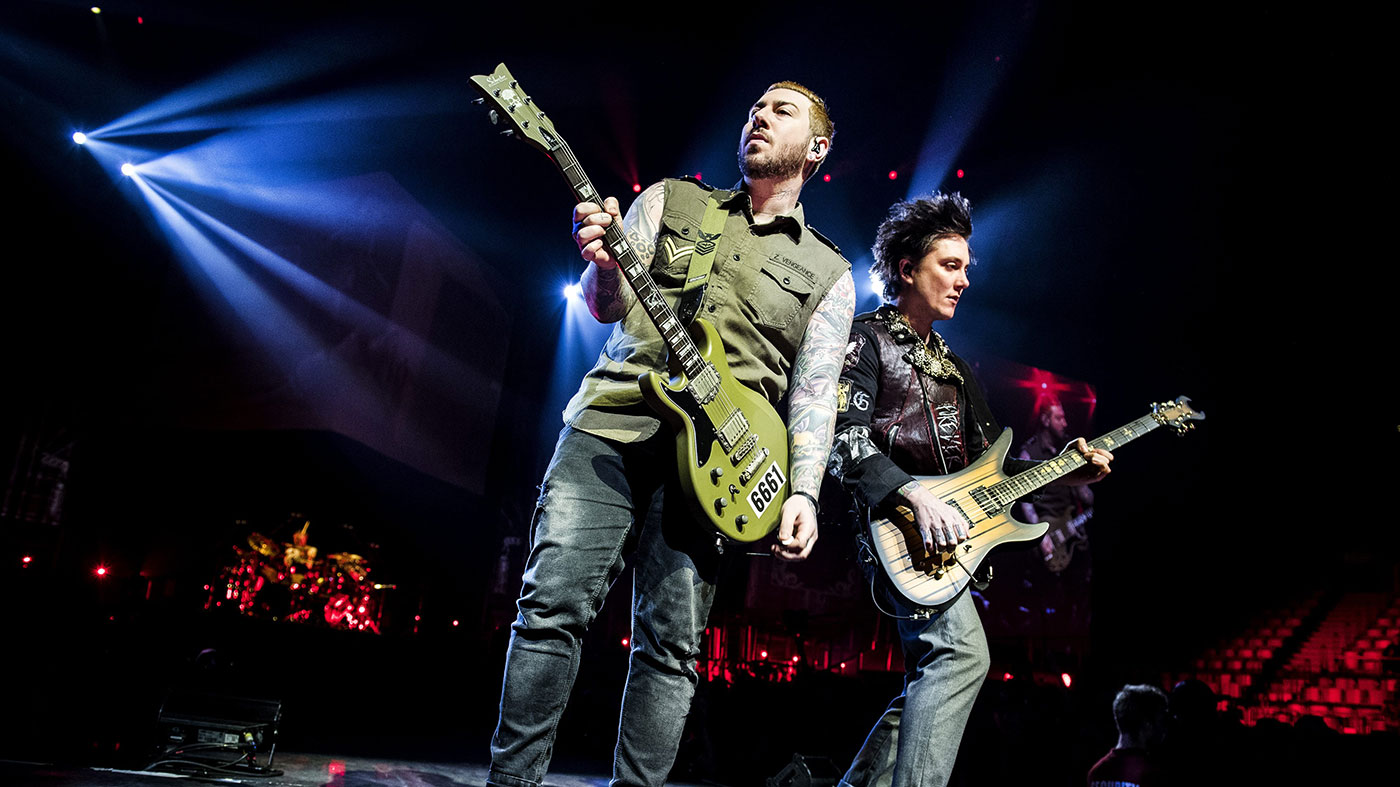
Legato? Let it go...
So where do you feel your biggest weaknesses lie as guitarists?
Synyster: “Legato is definitely the worst thing in the world for me. I love Allan Holdsworth but my left hand can’t do it, it never will. That frustrates the shit outta me. I’ve studied his playing as much as any fan, but I’m not as gifted. And his right hand might not do what mine does. I’d say my strength lies composing solos that capture the energy and spirit of a song.
Petrucci once said there aren’t enough hours in the day to practice and I agree
“Petrucci once said there aren’t enough hours in the day to practise and I agree. If I wasn’t in this band, I could be a much better guitar player… but that doesn’t totally make sense because I’ve worked in studios with great producers on arrangements, sometimes almost to a fault.”
Zacky: “My biggest peeve is having to practise. I get so pissed off when Syn writes a dual lead that’s slightly out of my ability and he does on every album! [laughs] Whenever he suggests them, I have to say, ‘Dude, I can’t fuckin’ play that!’ Then he’ll show me and I’ll learn it.

Brooks Wackerman on making his mark with metal masters Avenged Sevenfold
“He’d rather practice all day, whereas I don’t. It’s just a tool to create visuals and play way too loud. As for musical perfection, I don’t believe in it. I think you’re chasing an impossible dream. Having fun and enjoying it is always the most important thing.”
There’s a lot of social commentary in The Stage. How did the political unrest around the world rematerialise as sounds coming out of your amps?
Zacky: “As I’ve gotten older, I watch the news and it feels like the same things keep occurring. People are going to get a painful history lesson one way or another. They’ll either get it in class or in real-life. It would be nice if people could see all the warning signs, but they never do.
People are going to get a painful history lesson one way or another. They’ll either get it in class or in real-life
“There will always be war and dictators as long as people allow it. There are those trying to create technologies [for the body] to help heal itself - some of our songs are about nanobots that can regenerate organs or cure cancers. Then there are the people holding up pitchforks because they think someone fuckin’ stole a job they never had in the first place. It’s very sad and unfortunate circumstances.
“I feel it’s important to look beyond the future in a way. Looking at the universe to understand who we are as people. We’re a small grain of sand in a sky full of stars that are innumerable. Hopefully this will inspire people to realise all the small shit they worry about day-to-day is pretty insignificant.”
Synyster: “When you read a book or watch a film or just talk about something, it does filter into music. With Exist, for example, we wanted to write the soundtrack to the Big Bang theory. The riffs come easy when you have a philosophy. It’s the days you don’t have shit to talk about, the coffee’s not waking you up, you’re tired of writing… that’s when it gets tough.”
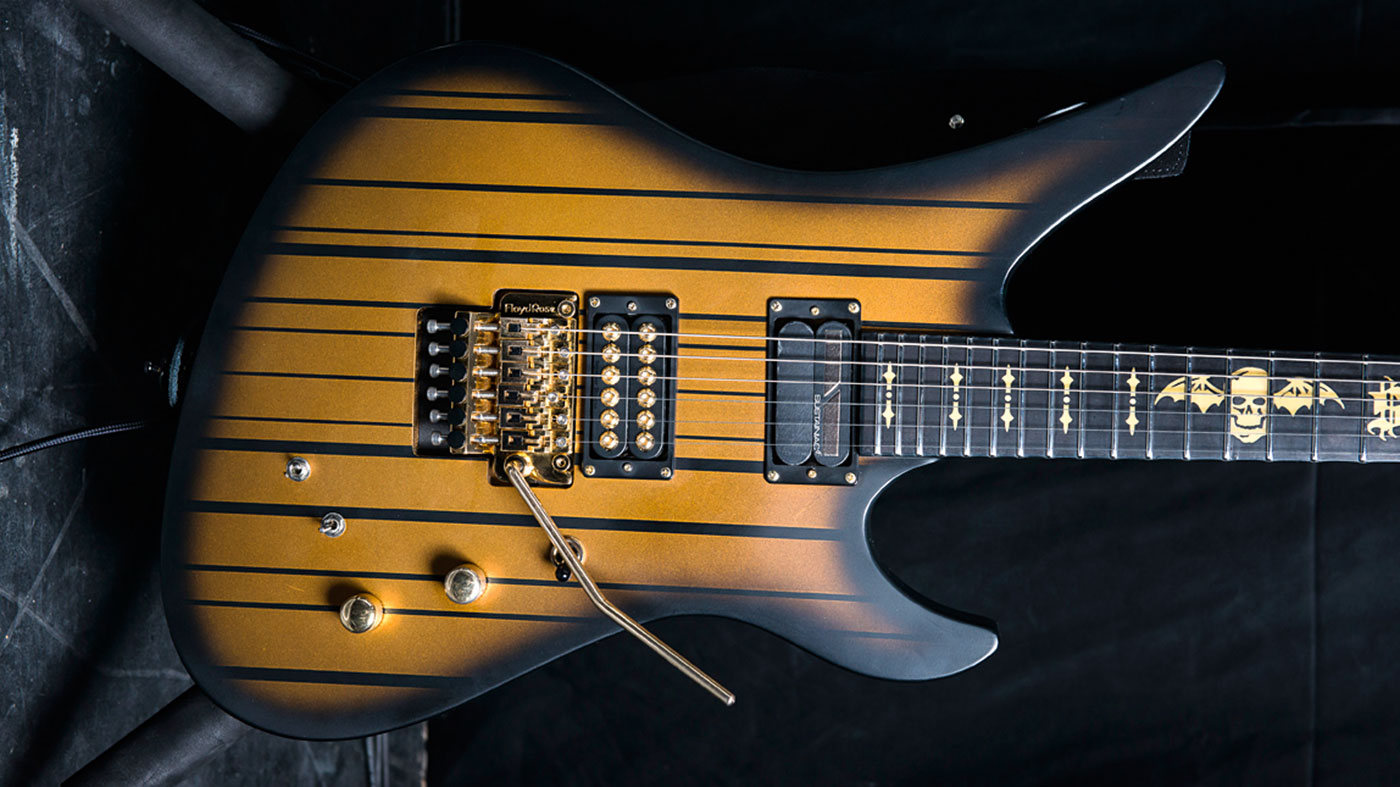
Gear: Schecter Synyster Custom/Standard
Synyster Gates: “I’m still using the Schecter signatures with some Sustainiacs and Seymour Duncan Invaders - though I’ll be switching over to my new signature pickups, which just came out and I’m really excited about.
“They took a while to develop, the incredible people at Schecter helped make it all happen. There are little things here and there that they bring. We designed our guitars to supplement all the different sounds we might need. Whenever it calls for something old-school, these can do it.”
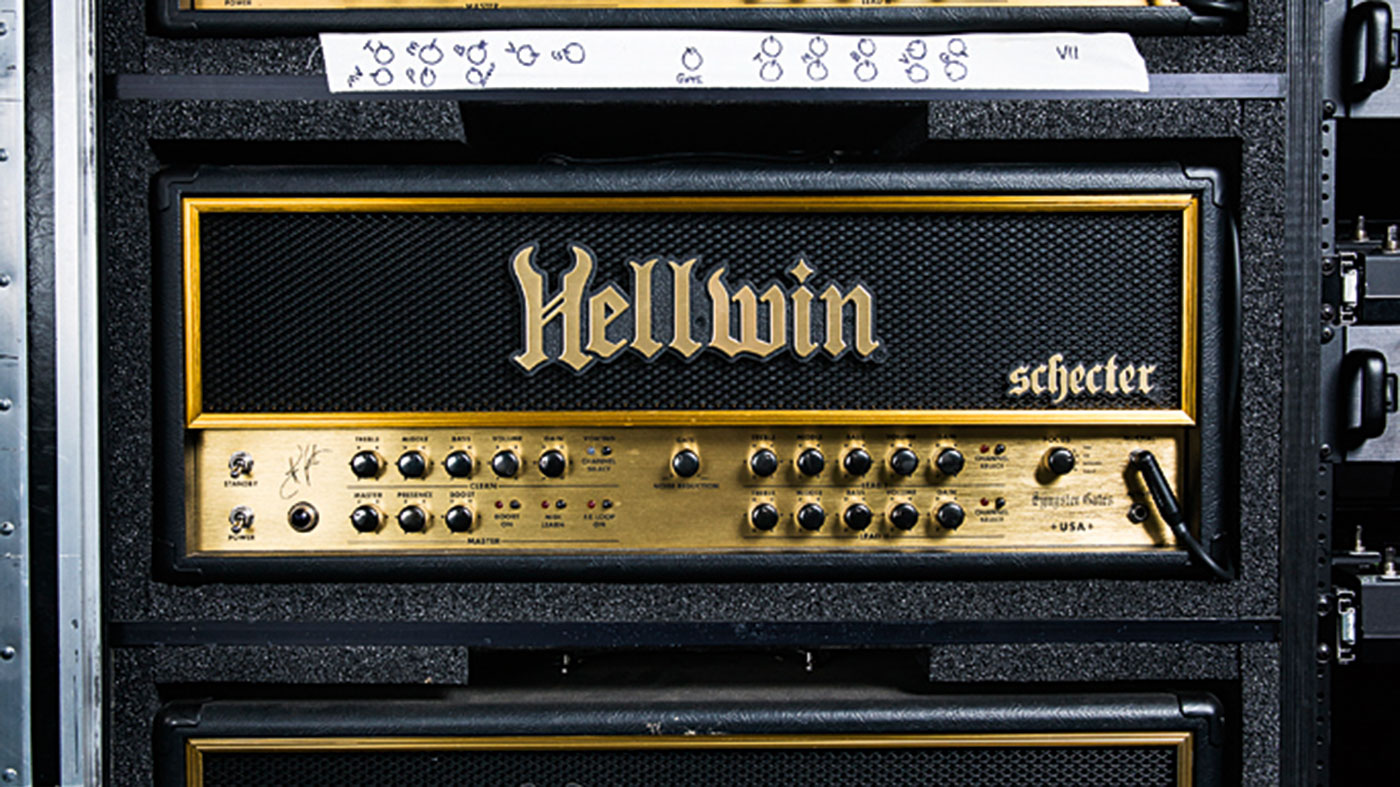
Gear: Schecter Hellwin Amplifier
Synyster: “I don’t even know if the amps are even for sale any more or what’s going on with that, but I know I still love them! I’m really not at a loss with the Schecter around.
“We worked extensively on those cleans so if I dial back the tone and stick it on the neck or split it, I can do a number of things. I play all sorts of weird styles, we listen to so much weird stuff and have done since we were kids. I sent Schecter an old Polytone amp to emulate for my cleans, I wanna play jazz on that motherfucker, and you can!
“As well as that Fender Princeton sparkly clean, that all came from what I was listening to - things like Jeff Buckley’s Grace. Dude, the rhythms on that… are you kidding me? I designed my gear to get those sparkly tones. We love classic sounds, so it does future, past and present, in one.”
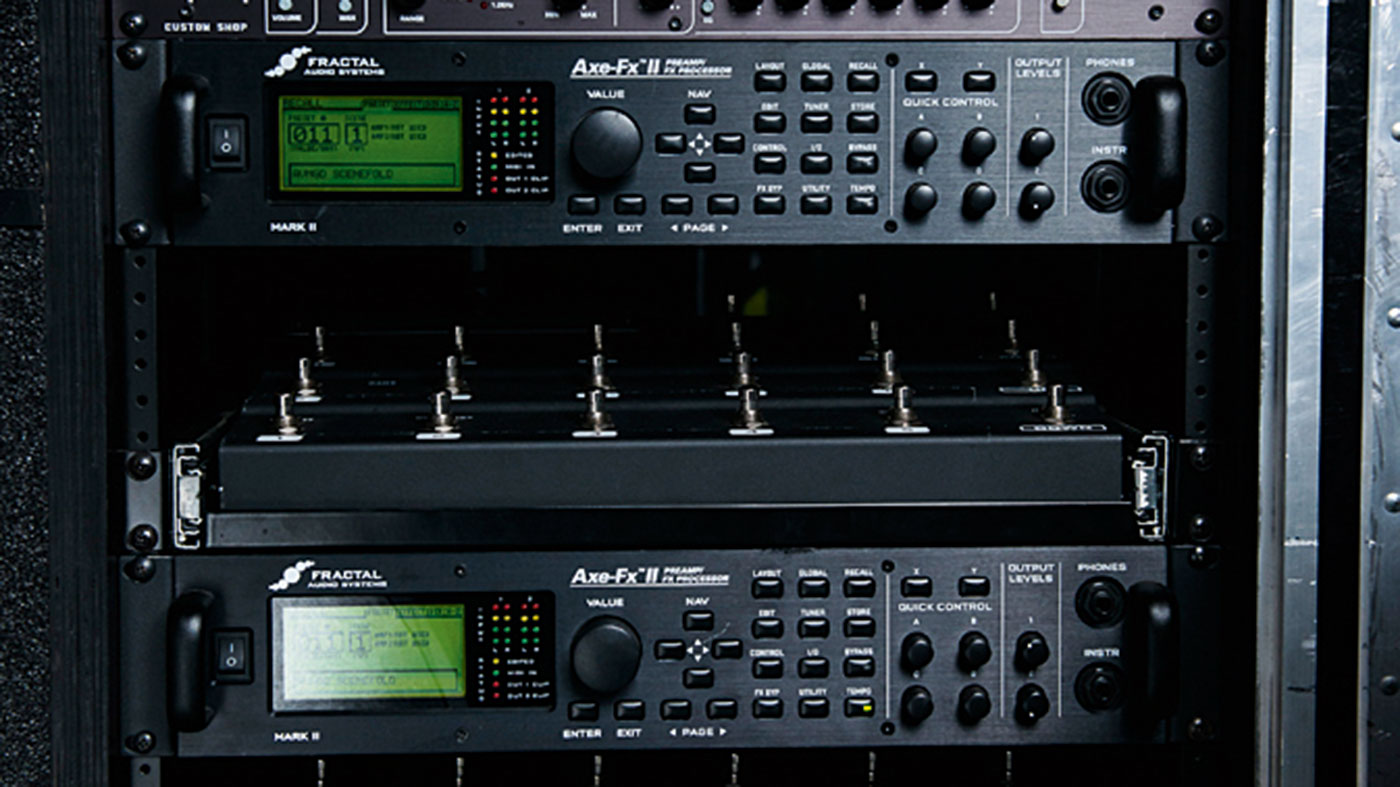
Gear: Fractal Audio Axe-Fx II
Synyster: “I use a Fractal in the loop just for effects, like backwards reverbs and delays on Angels. I really like the harmonizer - you can do a lot of intelligent harmonising, like jumping from a sixth above to a sixth below.
“We’re going to play a new song called God Damn tonight, which goes from minor back and forth, so we had to program it all in, which was fucking brutal and took forever. I might need a major third or a minor third over certain chords. We’re using 16 different intelligent harmonizers to pitch-shift.
“For the standard harmonies, Zacky and I cruise up and just do our thing. But for the harmonies on a song like God Damn or City Of Evil, which is full to the brim of harmonies doing everything, now we can have solid rhythms behind it all, instead of sacrificing anything. We couldn’t really do that before.”
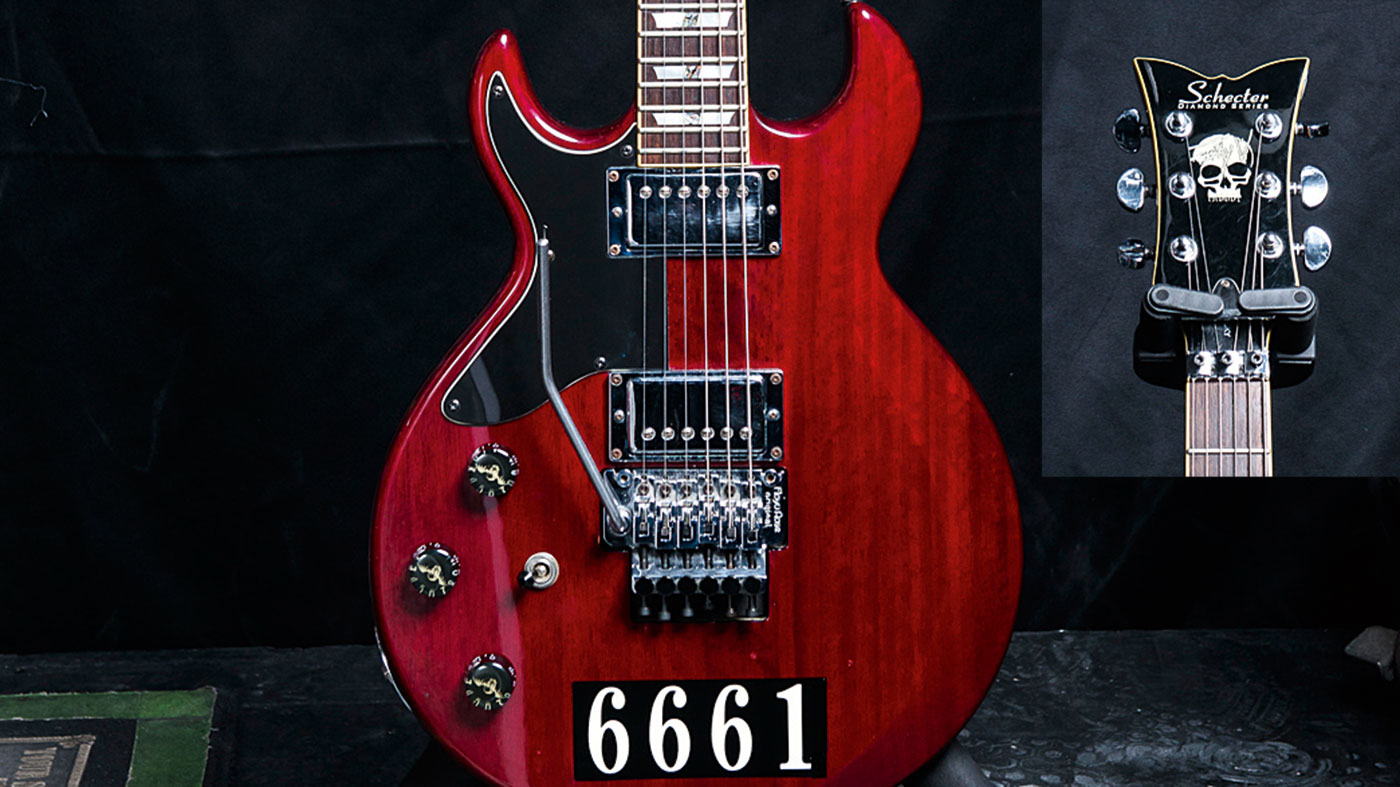
Gear: Schecter Zacky Vengeance Custom
Zacky Vengeance: “My Schecter signature is tried and true, it’s the one I’ve been playing since I stage-dived at our first London headline show and broke my other guitar.
“I needed one for the Unholy Confessions video and I didn’t have enough money to buy one, so Schecter gave me it for free. I’ve been playing that - different colours and hardware - but same fuckin’ guitar since day one.”
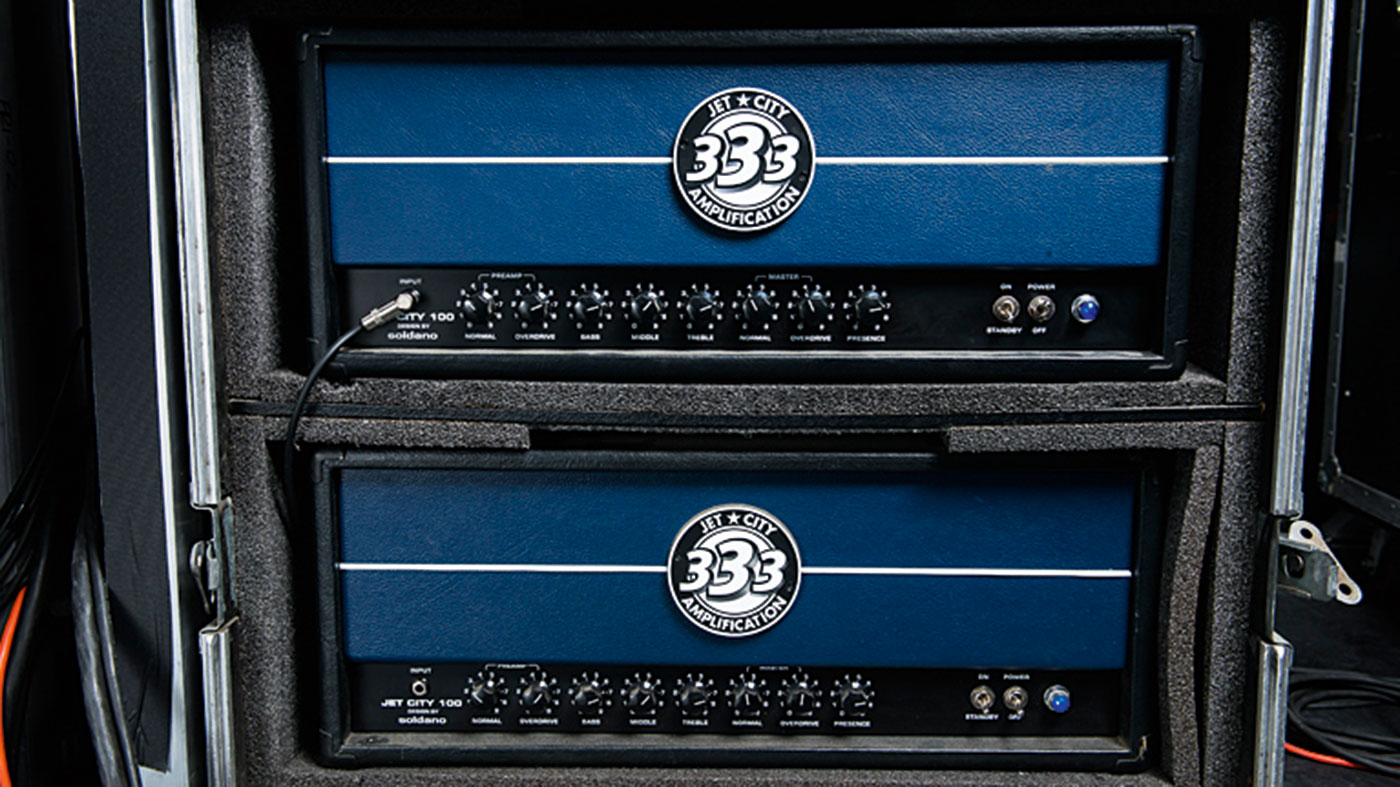
Gear: Jet City Amplification 100HDM
Zacky: “I play Jet City amps, they’re small, Soldano-made amps. They only cost about 500 or 600 bucks, I’ve never fucked around with boutique, you don’t need them to go out and rule the world.
“I could never afford them, either! So I play one of the cheapest amps on the market, and it sounds killer. They sent one out, my guitar tech thought it sounded great and so did I. I’ve been loyal to Schecter, and I feel the same way about Jet City. The affordability plays a big part, I don’t want fans to need to save for a lifetime to get one.”
Avenged Sevenfold’s latest album, The Stage is available now on Capitol Records.
Amit has been writing for titles like Total Guitar, MusicRadar and Guitar World for over a decade and counts Richie Kotzen, Guthrie Govan and Jeff Beck among his primary influences. He's interviewed everyone from Ozzy Osbourne and Lemmy to Slash and Jimmy Page, and once even traded solos with a member of Slayer on a track released internationally. As a session guitarist, he's played alongside members of Judas Priest and Uriah Heep in London ensemble Metalworks, as well as handling lead guitars for legends like Glen Matlock (Sex Pistols, The Faces) and Stu Hamm (Steve Vai, Joe Satriani, G3).
